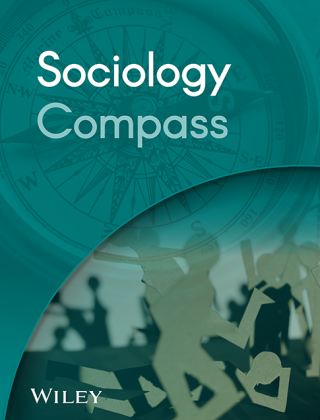-
Jun 2025 • Journal Article • Journal of Research on Adolescence
Exploring extracurricular clubs in high schools as third spaces for developing youth activism and critical engagement
AbstractFormal school spaces are often limited in preparing youth for critical engagement and activism due to standardized curricula, constrained resources, and politicized pressures. Nonformal learning environments, specifically extracurricular clubs, remain underexplored as spaces for youth activism. This study investigates how extracurricular clubs in high schools function
… show more -
30 May 2025 • Book Chapter • 2024 Yearbook Emerging Technologies in Learning
A Remote Workshop on IoT-Based Monitoring of Robotic Production Systems
AbstractThis paper reports on a workshop in which the students learned about IoT concepts and technologies through practice in monitoring of automated production processes using IoT. A production system model created for this practice was a remotely monitored robotic cell. The cell, located in the Technion Cognitive Robotics Lab was equipped with cameras, wireless sensors, and
… show more -
19 May 2025 • Journal Article • IEEE Transactions on Professional Communication
-
May 2025 • Journal Article • Sociology Compass
Local Narratives, Global Connections: Modes of Action and Coordination Among Italian Youth Activists
AbstractThis study applies social movement theory to examine how young Italian activists embody and reconfigure global narratives within their specific contexts. Over 6 months in 2024, we conducted three in-depth interviews with each of 10 activists and analysed their online activities on social media. During the interviews, participants reflected on their social media posts
… show more -
28 Apr 2025 • Journal Article • ACM Transactions on Computing Education
Rethinking Computer Science Education in the Age of GenAI
AbstractIn this opinion piece, we explore the idea that GenAI has the potential to fundamentally disrupt computer science education (CSE) by drawing insights from ten pedagogical and cognitive theories and models. We highlight how GenAI improves CSE by making educational practices more effective and requires less effort and time, and all at a lower cost, properties that have
… show more -
23 Apr 2025 • Journal Article • Sport, Education and Society
Health promotion in the Israeli education system: a policy analysis through an intersectional lens
AbstractThis study used a qualitative approach to examine health promotion policies in the Israeli education system, analysing 24 written policy documents (2011–2023) and conducting semi-structured interviews with senior policymakers. The analysis revealed that policy documents did not address health promotion in a multicultural society, and programme evaluations have not been
… show more -
22 Apr 2025 • Journal Article • Metacognition and Learning
Self-regulated learning and reflection: a tool for teachers and students
AbstractTransitioning from traditional teaching to self-regulated learning (SRL) necessitates supporting 21st-century teachers by developing their self-regulated teaching (SRT) skills. This study explores teachers’ and students’ SRL. Our goal was to identify gaps and similarities between teachers' and students' SRL in the context of school and professional development programs
… show more -
18 Apr 2025 • Preprint • Social Science Research Network
Executive Function Networks in Relation to Listening and Reading Comprehension: A Comparison between Children with Self-Limited Epilepsy with Centro-Temporal Spikes (Selects), Children with Reading Difficulties and Typical Readers
AbstractChildren with Self-limited Epilepsy with Centro-Temporal Spikes (SeLECTS) display deficits in both listening and reading comprehension, as well as in executive functions (EF). The aim of the current study was to investigate differences in EF involvement during listening and reading comprehension in children with SeLECTS (ages 8-15 years, n=17), and compare findings to
… show more -
16 Apr 2025 • Journal Article • Educational Studies in Mathematics
Failure to teach/learn mathematics: a complexity-discursive perspective
AbstractIn this theoretical essay, I build on complexity theory and commognition to theorize the ways in which failure to teach/learn mathematics (FTLM) emerges through the dynamic interactions among teacher, learner, and curriculum demands. I focus on two main concepts of complexity theory: emergence in dynamic systems and attractor states (stable, self-reinforcing patterns)
… show more -
14 Apr 2025 • Journal Article • Journal of Science Communication
Exploring temporal and cross-national patterns: The use of generative AI in science-related information retrieval across seven countries
AbstractThis study explores the role of ChatGPT in science-related information retrieval, building on research conducted in 2023. Drawing on online survey data from seven countries—Australia, Denmark, Germany, Israel, South Korea, Taiwan, and the United States—and two data collection points (2023 and 2024), the study highlights ChatGPT’s growing role as an information intermediary
… show more



























